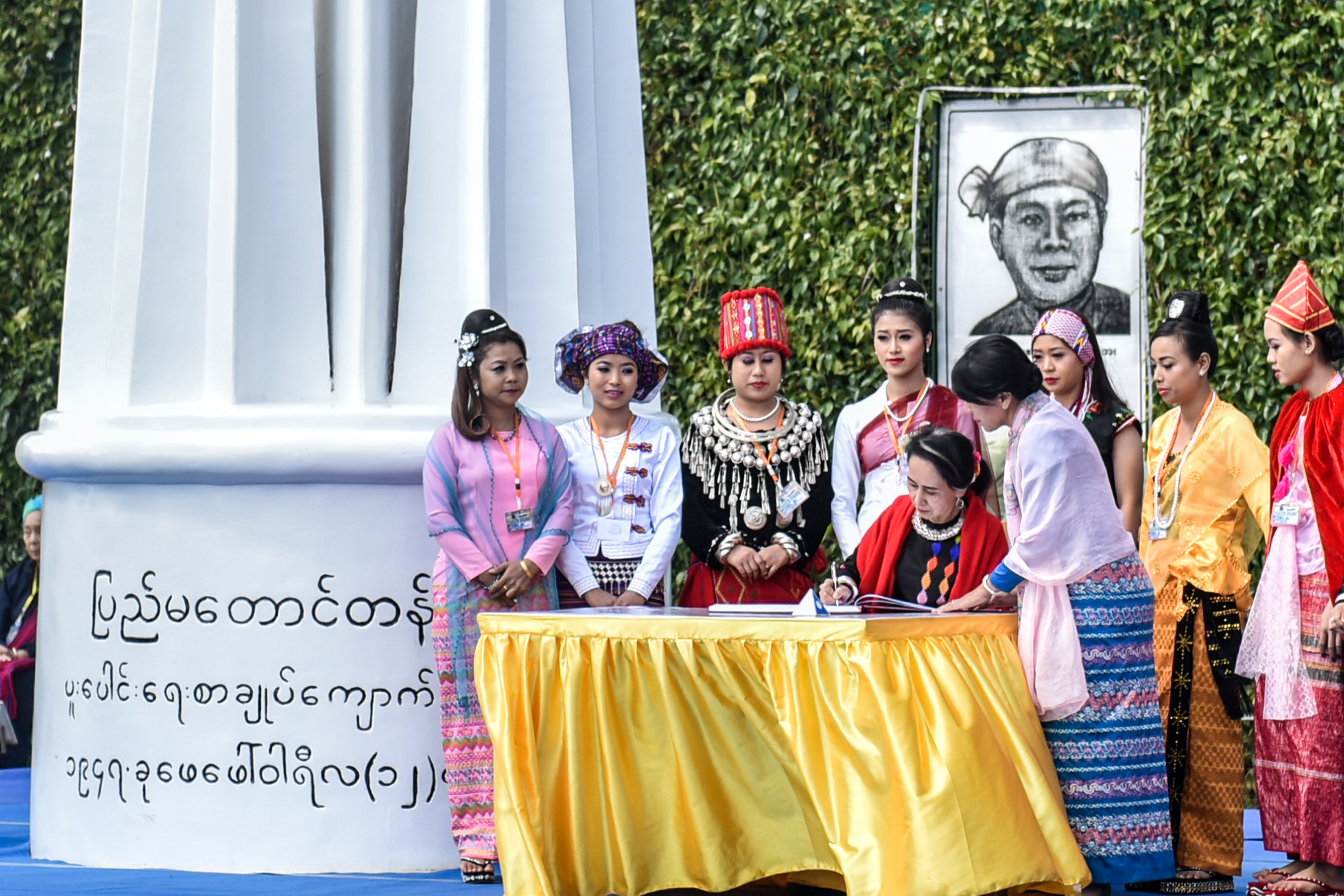|
|
|
As Myanmar prepares to go the polls in November, it is a time of rising political tension. Covid-19 is spreading, while conflict continues in several ethnic states. As Kyaw Linn argues, a key reform question remains to be answered. Will the country have federal reform and, if so, what kind?
These commentaries are intended to contribute to a broader understanding to the many challenges facing the country and its peoples.
See the complete list of all the Myanmar commentaries.
|
|
|
|
 State Counsellor Daw Aung San Suu Kyi attends the 70th Union Day commemoration in 2017 / Photo credit The Irrawaddy State Counsellor Daw Aung San Suu Kyi attends the 70th Union Day commemoration in 2017 / Photo credit The Irrawaddy
|
|
|
|
|
|
|
| |
| The National League for Democracy: A Party for Democracy or Federalism? |
|
A Commentary by Kyaw Lynn
02 October 2020
A political party that arose in 1988 out of the largest people’s uprising in our country’s history is now pushing its founding spirit and morality aside. The National League for Democracy (NLD) was founded on 27 September 1988 under the leadership of U Aung Shwe, U Tin Oo, U Kyi Maung, Daw Aung San Suu Kyi and U Aung Gyi. In the following years, it developed a partnership in building national reconciliation with ethnic political parties such as the Shan Nationalities League for Democracy (SNLD) led by Hkun Htun Oo and the Arakan League for Democracy (ALD) led by U Saw Mra Aung. For a moment, a breakthrough in achieving peace and democracy appeared possible.
In the 1990 general election, these three parties – the NLD, SNLD and ALD – won victory in their respective areas. But the military government of the State Law and Order Restoration Council declined to transfer power and cracked down hard on pro-democracy parties. As a result, the trio decided not to participate in the political system imposed by the national armed forces (Tatmadaw). Instead, they developed a close relationship in promoting democracy, a policy that they maintained until the 2010 general election which was won by the military-backed Union Solidarity and Development Party (USDP). With the USDP taking office, they decided to cautiously watch the process of national transition instituted by the quasi-civilian government of President U Thein Sein.
Until this time, the main strategy of the NLD was collaboration with other pro-democracy and ethnic political parties in the struggle against military or military-backed rule. These policies, however, have changed constantly following the party’s landslide victory in the 2015 general election, which took place under the terms and conditions of the 2008 constitution that protect the Tamadaw as an autonomous institution in national politics. These special rights greatly restrict the abilities of the winning party to govern in areas of critical importance to the country’s future, including the peace, borderland and security sectors (see below).
Despite these limitations, there are policy areas where the NLD could have demonstrated its influence in support of progressive change. Under the 2008 constitution, the NLD has the right to choose the central and local governments at all levels of the legislatures. But, following its 2015 victory, the party barely acknowledged election success by nationality parties in the ethnic states. This exclusion has proven a key failing.
|
|
|
|
|
|
| |
|
|
|